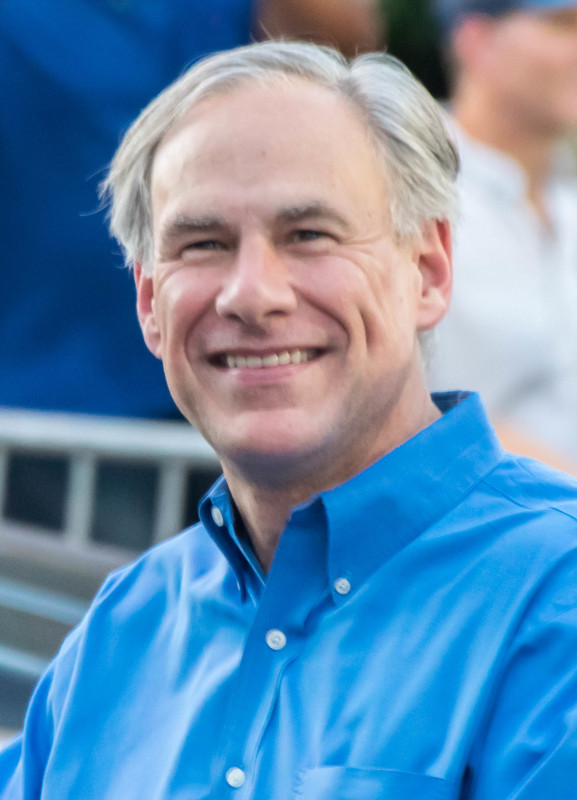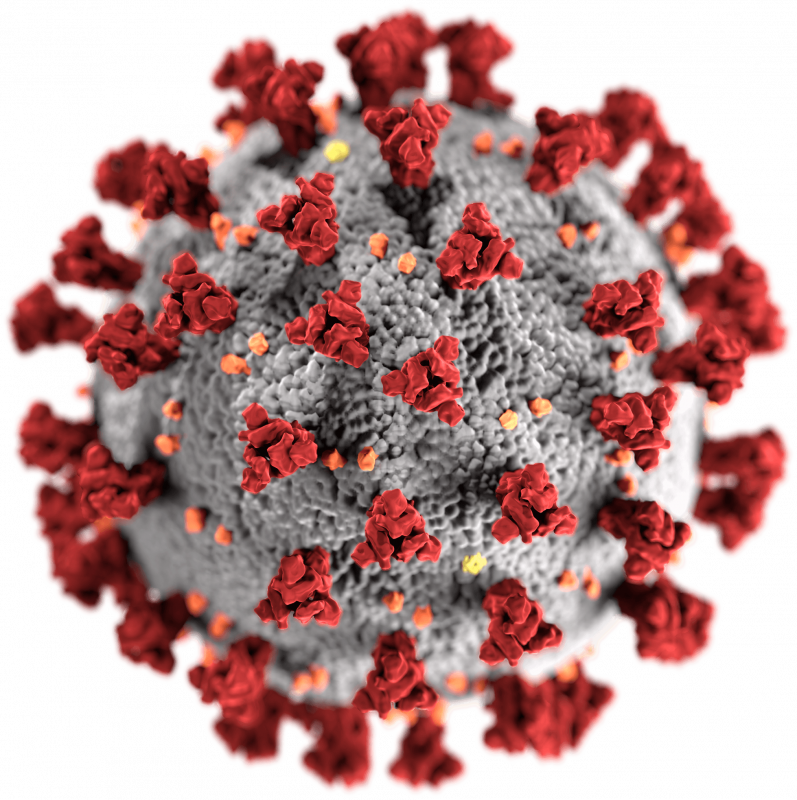Texas, the second-largest US state by area and population, is located in the South Central region. It borders Louisiana, Arkansas, Oklahoma, New Mexico, and Mexico, with a Gulf of Mexico coastline. Known as the Lone Star State, its name refers to its history as the independent Republic of Texas. As of 2024, it has over 31 million residents. Its area covers 268,596 square miles (695,660 km2).
1900: Galveston Hurricane
In 1900, Texas suffered the deadliest natural disaster in U.S. history with the Galveston hurricane.
1901: Disenfranchisement of Voters
In 1901, the Democratic-dominated state legislature passed a bill requiring payment of a poll tax for voting, effectively disenfranchising most Black and many poor White and Latino people.
1901: Discovery of Oil at Spindletop
On January 10th, 1901, the first major oil well in Texas was discovered at Spindletop, south of Beaumont, leading to an oil boom.
1911: Texas leads in railroad miles
Since 1911, Texas has led the nation in the length of railroad miles within the state.
1912: Socialist Party Popularity
After 1912, the Socialist Party became the second-largest party in Texas, coinciding with a large socialist upsurge in the United States.
1915: 1915 Galveston hurricane
In 1915, the Galveston hurricane impacted Texas.
1932: Peak railway length in Texas
In 1932, Texas railway length peaked at 17,078 miles (27,484 km).
1940: Texas Population Composition
In 1940, Texas was 74% White, 14.4% Black, and 11.5% Hispanic.
1950: "Everything is bigger in Texas" phrase usage
The phrase "everything is bigger in Texas" has been in regular use since at least 1950.
1957: Hurricane Audrey
In 1957, Hurricane Audrey impacted Texas.
1959: Alaska becomes a state
In 1959, Alaska became a state, making Texas no longer the largest U.S. state.
1961: Hurricane Carla
In 1961, Hurricane Carla impacted Texas.
1967: Hurricane Beulah
In 1967, Hurricane Beulah impacted Texas.
1972: Peak of Oil Production
In 1972, oil production in Texas averaged three million barrels per day at its peak.
1976: Capital punishment resumes
Since the US Supreme Court allowed capital punishment to resume in 1976, 40% of all U.S. executions have taken place in Texas.
1979: Tropical storm Claudette
In 1979, Tropical storm Claudette caused damage in Texas.
1980: San Antonio as "The Tejano Music Capital Of The World"
Since 1980, San Antonio has evolved into "The Tejano Music Capital Of The World".
1980: Republican support in Texas
Since 1980, most Texas voters have supported Republican presidential candidates.
1983: Hurricane Alicia
In 1983, Hurricane Alicia impacted Texas.
1984: Texas highway miles
In 1984, Texas had 71,000 miles (114,000 km) of public highway.
1986: "Don't Mess with Texas" campaign inception
In 1986, the "Don't Mess with Texas" slogan began as an anti-littering advertisement campaign.
1989: Tropical storm Allison
In 1989, Tropical storm Allison caused damage in Texas.
1990: Hispanic Population Surpasses Black Population
By 1990, Hispanics and Latino Americans overtook Blacks to become the largest minority group in Texas.
1990: Islamic Population in Texas in 1990
In 1990, the Islamic population in Texas was about 140,000.
1994: No Democrat elected to statewide office
Since 1994, Texans have not elected a Democrat to a statewide office.
1996: DART begins light rail operation
In 1996, Dallas Area Rapid Transit (DART) began operating the first light rail system in the Southwest United States.
1996: Hopwood v. Texas case
Texas's alternative affirmative action plan attempts to avoid problems stemming from the Hopwood v. Texas case in 1996.
1997: Texas Motor Speedway hosts races
Since 1997, Texas Motor Speedway has hosted annual NASCAR Cup Series and IndyCar Series auto races.
2000: Texas Population Growth 2000-2010
Between 2000 and 2010, the total population of Texas grew by 20.6%, with Hispanics and Latino Americans growing by 65%, while non-Hispanic Whites grew by only 4.2%.
2000: Decline in Texas railway length
By 2000, Texas railway length had declined to 14,006 miles (22,540 km).
2000: Population of foreign-born residents
In 2000, the population of foreign-born residents was 2,899,642
2000: Texas redistricting
Texas had already redistricted following the 2000 census.
2001: Tropical storm Allison
In 2001, Tropical storm Allison caused damage in Texas.
2002: Texas Leads in Export Revenue
Since 2002, Texas has led the U.S. in state export revenue.
2003: Texas redistricting
In 2003, the Texas redistricting of Congressional districts led by Republican Tom DeLay was called "an extreme case of partisan gerrymandering" by The New York Times.
2004: Adherents of Other Religions in Texas in 2004
Around 146,000 adherents of religions such as Hinduism and Sikhism lived in Texas as of 2004.
2004: Christmas Eve Snowstorm
During the 2004 Christmas Eve snowstorm, 6 inches (150 mm) of snow fell as far south as Kingsville, Texas.
2004: Goods passed through Texas FTZs
In 2004, a combined total of $298 billion of goods passed through Texas Foreign Trade Zones (FTZs).
2005: Texas highway miles
As of 2005, there were 79,535 miles (127,999 km) of public highway in Texas.
2005: Hurricane Rita
In 2005, Hurricane Rita impacted Texas.
2005: Railroad regulation reassignment
In 2005, Texas reassigned the duties of regulating state railroads from the Railroad Commission of Texas to TxDOT.
2005: Urban Population in Texas in 2005
In 2005, urban centers in Texas contained two-thirds of the state's population. The state's economic growth has led to urban sprawl and its associated symptoms.
May 2006: Texas initiates "code red" program
In May 2006, Texas initiated the "code red" program in response to the report that the state had 25.1 percent of the population without health insurance.
2006: Language spoken at home in Texas in 2006
As of 2006, 34.2% of Texas's population aged five and older spoke a language at home other than English.
2006: League of United Latin American Citizens v. Perry
In 2006, legal challenges to the redistricting reached the national Supreme Court in the case League of United Latin American Citizens v. Perry, but the court ruled in favor of the state.
2007: Study on residents who engage in regular exercise
According to a 2007 study, Texas is ranked forty-second in the percentage of residents who engage in regular exercise.
2008: Hurricane Ike
In 2008, Hurricane Ike impacted Texas.
2008: Jewish Population in Texas in 2008
In 2008, the Jewish population in Texas was around 128,000.
2010: Maternal mortality rate in Texas
From 2010 to 2014, the rate by which Texas women died from pregnancy-related complications doubled.
2010: Language spoken at home in Texas in 2010
In 2010, 65.8% of Texas residents age 5 and older spoke only English at home, 29.2% spoke Spanish, 0.8% Vietnamese, and 0.6% Chinese. Other languages included German, Tagalog, and French.
2010: Texas Population Demographics in 2010
In 2010, Hispanics accounted for 49% of births, non-Hispanic Whites 35%, non-Hispanic Blacks 11.5%, and Asians/Pacific Islanders 4.3%. Data released in February 2011 showed Texas's White population below 50% (45%), with Hispanics growing to 38%.
2010: Business-friendly status and millionaires in Texas in 2010
In 2010, Texas was ranked as the most business-friendly state by Site Selection Magazine. There were 346,000 millionaires in Texas in 2010.
2010: Emission Events
In 2010, there were 2,553 "emission events" in Texas which poured 44.6 million pounds (20,200 metric tons) of contaminants into the Texas sky.
2010: Texas Census Population
In the 2010 census, the population of Texas increased 15.9% since then to 29,145,505 in 2020.
February 2011: U.S. Census Bureau data about Texas population
Based on U.S. Census Bureau data released in February 2011, for the first time in recent history, Texas's White population is below 50% (45%) and Hispanics grew to 38%.
2011: School corporal punishment
According to government data for the 2011, school corporal punishment was used in Texas schools.
2011: STAAR test replaces TAKS
In 2011, the State of Texas Assessments of Academic Readiness (STAAR) test replaced the Texas Assessment of Knowledge and Skills (TAKS) test.
2011: Colonias in Texas
In 2011, the Texas Attorney General stated that Texas had about 2,294 colonias, estimating about 500,000 lived in them.
2012: Muslim Population in Texas in 2012
As of 2012, the number of Muslims in Texas was estimated to be between 350,000 and 400,000.
2012: Texas incentive programs in 2012
In 2012, Texas had incentive programs worth $19 billion per year to attract business, more than any other U.S. state.
2012: Pause of the athletics portion of the Lone Star Showdown rivalry
In 2012, the athletics portion of the Lone Star Showdown rivalry between Texas A&M University and the University of Texas at Austin was paused when Texas A&M left the Big 12 and joined the SEC.
2012: School corporal punishment
In the 2011–2012 school year, 28,569 public school students in Texas were paddled at least one time.
2012: STAAR test in Texas schools
In the 2011–2012 school year, students in Texas took the State of Texas Assessments of Academic Readiness (STAAR) in primary and secondary school.
2012: Circuit of the Americas hosts Formula 1
Since 2012, Austin's Circuit of the Americas has hosted a round of the Formula 1 World Championship.
2014: Oil Production in Texas in 2014
According to a 2014 study, if Texas were its own country, it would be the sixth-largest oil producer in the world.
2014: Christian Denominations in Texas in 2014
As of 2014, the Catholic Church was the largest Christian denomination in Texas at 23% of the population, while Protestants collectively constituted 50%.
2014: Migration from the U.S.–Mexico Border
During the 2014 crisis, many Central Americans, including unaccompanied minors traveling alone from Guatemala, Honduras, and El Salvador, reached Texas, overwhelming Border Patrol resources.
2014: Wind power in Texas
In 2014, 10.6% of the electricity consumed in Texas came from wind turbines.
2014: Evangelical Protestant demographics in Texas in 2014
In 2014, Evangelical Protestants represented 31% of the population, with Baptists being the largest Evangelical tradition at 14%. Methodists made up 4% and were the second-largest Mainline Protestant group. The Assemblies of God USA was the largest Evangelical Pentecostal denomination.
2014: Non-Christian faiths in Texas in 2014
In 2014, Non-Christian faiths accounted for 4% of the religious population, and 18% were religiously unaffiliated, of whom 2% were atheists and 3% agnostic. Judaism, Islam, and Buddhism were tied as the second-largest religion.
2014: African American Christian denominations in Texas in 2014
In 2014, the largest historically African American Christian denominations in Texas were the National Baptist Convention (USA) and the Church of God in Christ. The Church of Jesus Christ of Latter-day Saints is the largest nontrinitarian Christian group in Texas.
2014: Maternal mortality rate in Texas
In 2014, the rate by which Texas women died from pregnancy-related complications doubled from 2010, to 23.8 per 100,000.
2014: Undocumented Immigrants in Texas
In 2014, there were an estimated 1.7 million undocumented immigrants in Texas, making up 35% of the total Texas immigrant population and 6.1% of the total state population.
2014: Residents undocumented immigrants
In 2014, there were an higher number of residents (1,739,000 + 103,000) that were undocumented immigrants than in 2019.
2014: Tea Party gains in Texas elections
In the 2014 Texas elections, the Tea Party movement made large gains, with numerous Tea Party favorites being elected into office.
2015: Foreign-Born Residents in Texas
In 2015, Texas had 4.7 million foreign-born residents, about 17% of the population and 21.6% of the state workforce.
2016: Residents undocumented immigrants
Since 2016, there was an increase of 142,000 undocumented immigrants in Texas to reach 1,739,000 in 2019.
2017: Greenhouse Gas Emissions
As of 2017, Texas emitted the most greenhouse gases in the U.S., about 1,600 billion pounds (707 million metric tons) of carbon dioxide annually.
2017: Hurricane Harvey
In 2017, Hurricane Harvey made landfall in Rockport as a Category 4 Hurricane, causing significant damage and catastrophic flooding in the Greater Houston area, becoming the costliest hurricane worldwide.
2018: Increase in Foreign-Born Residents
As of 2018, the population increased to 4.9 million foreign-born residents or 17.2% of the state population, up from 2,899,642 in 2000.
2018: Incarceration rate
In 2018, Texas had the 8th highest incarceration rate in the U.S.
2018: Millionaire households in Texas in 2018
In 2018, the number of millionaire households in Texas increased to 566,578.
2019: Undocumented Immigrant Population
According to the American Community Survey's 2019 estimates, 1,739,000 residents were undocumented immigrants in Texas.
2019: Tropical Storm Imelda
In 2019, Tropical Storm Imelda caused damage in Texas.
2019: Texas Growth Rate
In 2019, a study determined Texas's growth rate at 1,000 people per day.
2019: Texas population demographics in 2019
In 2019, non-Hispanic Whites represented 41.2% of Texas's population. Black people made up 12.9%, American Indians and Alaska Natives 1.0%, Asian Americans 5.2%, Native Hawaiians and other Pacific Islanders 0.1%, some other race 0.2%, and two or more races 1.8%. Hispanics or Latino Americans of any race made up 39.7% of the estimated population.
May 2020: Texas Unemployment Rate in May 2020
In May 2020, during the COVID-19 pandemic, the state's unemployment rate was 13 percent.
2020: University rankings
According to 2020's latest Center for World University Rankings report, The University of Texas at Austin and Texas A&M University were ranked as the 21st and 41st best universities in the nation, respectively.
2020: Racial and ethnic composition of Texas in 2020
At the 2020 census, Texas was 42.5% White (39.8% non-Hispanic White), 11.8% Black, 5.4% Asian, 0.3% American Indian and Alaska Native, 0.1% Native Hawaiian and other Pacific Islander, 13.6% some other race, 17.6% two or more races, and 40.2% Hispanic and Latino American of any race. Minority Americans made up 60.2% of the Texas population.
2020: Protestant Demographics in Texas in 2020
In 2020, Protestants declined to 47% of the Texas population. Evangelical Protestantism declined to 14%, while Mainline Protestants made up 15%. Hispanic/Latino American-dominated and historically Black/African American Protestantism grew to 13%.
2020: Religious Affiliation in Texas in 2020
In 2020, according to the Public Religion Research Institute, 75.5% of the Texas population identified as Christian.
2020: Non-Christian faiths in Texas in 2020
In 2020, non-Christian faiths accounted for 5% of the religious population, with the irreligious at 20%, Judaism (1%), Islam (1%), Buddhism (1%), Hinduism and other religions at less than 1 percent each.
2020: Christian Denominations in Texas in 2020
In 2020, the Catholic Church's membership in Texas increased to encompassing 28% of the population identifying with a religious or spiritual belief. The Association of Religion Data Archives study in 2020, there were 5,905,142 Catholics in the state.
2020: Language Spoken in Texas in 2020
The 2020 American Community Survey estimated that 64.9% of the population spoke only English, while 35.1% spoke a language other than English. Roughly 30% of the total population spoke Spanish.
January 1, 2021: Petroleum reserves in Texas as of January 1, 2021
As of January 1, 2021, Texas had about 15.6 billion barrels of recoverable crude oil and 9.5 billion barrels of natural gas liquids. Texas is also a leader in natural gas production.
May 2021: Texas Heartbeat Act passed
In May 2021, the state legislature passed the Texas Heartbeat Act, which banned abortion from as early as six weeks of pregnancy, except to save the life of the mother.
2021: Language Spoken in Texas in 2021
By 2021, approximately 50,546 Texans spoke French or a French-based creole language. German and other West Germanic languages were spoken by 49,565 residents; Russian, Polish, and other Slavic languages by 37,444; Korean by 31,673; Chinese 86,370; Vietnamese 92,410; Tagalog 40,124; and Arabic by 47,170 Texans.
2021: Winter Storm Uri and Power Crisis
During February 13–17, 2021, Winter Storm Uri hit Texas, causing high power usage, rolling blackouts, and leaving millions without power and under boil-water notices.
2021: February 2021 North American winter storm
During the February 13–17, 2021 North American winter storm, Arctic air masses penetrated Texas, resulting in the 2021 Texas power crisis.
2021: Inaugural season for the Panther City Lacrosse Club
In 2021, the Panther City Lacrosse Club, a professional lacrosse team in the National Lacrosse League, began their inaugural 2021–2022 season.
July 2, 2022: Texas Surpasses 30 Million Population
As of July 2, 2022, Texas surpassed a total estimated population of 30 million people.
August 25, 2022: Law takes effect making abortion a felony
On August 25, 2022, a law took effect in Texas that made committing abortion at any stage of pregnancy a felony punishable by life in prison.
2022: Homeless population in Texas
According to HUD's 2022 Annual Homeless Assessment Report, there were an estimated 24,432 homeless people in Texas.
2022: Texas population demographics update in 2022
As of 2022, Hispanics and Latinos of any race replaced the non-Hispanic White population as the largest share of the state's population.
2022: Texas's U.S. House delegation
As of the midterm elections of 2022, a large majority of the members of Texas's U.S. House delegation are Republican, along with both U.S. Senators.
2022: Ancestry in Texas in 2022
In 2022, Mexican Americans made up 32.2% of the Texas population. Other self-reported ancestries included German (8.1%), English (7.9%), Irish (5.8%), American (4.6%), and others.
2022: Inaugural season for the Panther City Lacrosse Club
In 2022, the Panther City Lacrosse Club, a professional lacrosse team in the National Lacrosse League, continued their inaugural 2021–2022 season.
July 1, 2024: Texas Population Estimate
As of July 1, 2024, the U.S. Census Bureau estimated the population of Texas was 31,290,831.
2024: Texas Gross State Product in 2024
As of 2024, Texas had a gross state product (GSP) of $2.664 trillion. The median household income was $64,034, and the poverty rate was 14.2%.
2024: Texas Population
As of 2024, Texas has over 31 million residents and is the second-largest state in the United States by area and population.
2024: Texas Economy in 2024
As of 2024, Texas has the second-highest number (52) of Fortune 500 companies headquartered in the United States and leads in industries including tourism, agriculture, petrochemicals, energy, computers and electronics, aerospace, and biomedical sciences.
2024: Fortune 500 companies headquartered in Texas in 2024
As of 2024, Texas has the second-highest number (52) of Fortune 500 companies headquartered in the United States.
2024: Value of the Compromise of 1850 debt assumption
In 2024, the $10 million debt assumption from the Compromise of 1850 is equivalent to $363,423,000.
2024: Value of the Treaty of Guadalupe Hidalgo payment
In 2024, the US$18,250,000 payment for the Treaty of Guadalupe Hidalgo is equivalent to $663,247,000.
2024: Resumption of the athletics portion of the Lone Star Showdown rivalry
In 2024, the athletics portion of the Lone Star Showdown rivalry between Texas A&M University and the University of Texas at Austin will resume when Texas joins the SEC.
Mentioned in this timeline

Greg Abbott is the th and current governor of Texas...
Pfizer Inc is a multinational pharmaceutical and biotechnology corporation headquartered...

Christmas is an annual festival celebrated on December th commemorating...
Gerrymandering is the manipulation of electoral district boundaries to favor...

COVID- vaccines are designed to provide immunity against SARS-CoV- the...

Music is a cultural universal involving the arrangement of sound...
Trending

33 minutes ago Will Zalatoris Withdraws from Cognizant Classic Due to Back Issues, Seeks Pain Relief

34 minutes ago Ayton's Importance to Lakers, Trade Rumors Swirl, and Recent Double-Double Performance

2 hours ago Bradley Whitford and Amy Landecker Star in New Rom-Com 'For Worse': A Sneak Peek

2 hours ago Crispin Glover, 'Back to the Future' Actor, Faces Battery and Fraud Lawsuit
2 hours ago Broadcom Launches BroadPeak, Stock Slides Amid AI Chip Deal Rumors, Expands 6G Portfolio

3 hours ago WrestleMania 42 tickets on sale, Matt Hardy involved; TKO faces criticism.
Popular

Jesse Jackson is an American civil rights activist politician and...

Susan Rice is an American diplomat and public official prominent...

Barack Obama the th U S President - was the...

XXXTentacion born Jahseh Dwayne Ricardo Onfroy was a controversial yet...

Michael Joseph Jackson the King of Pop was a highly...

Michael Jordan widely considered one of basketball's greatest players significantly...